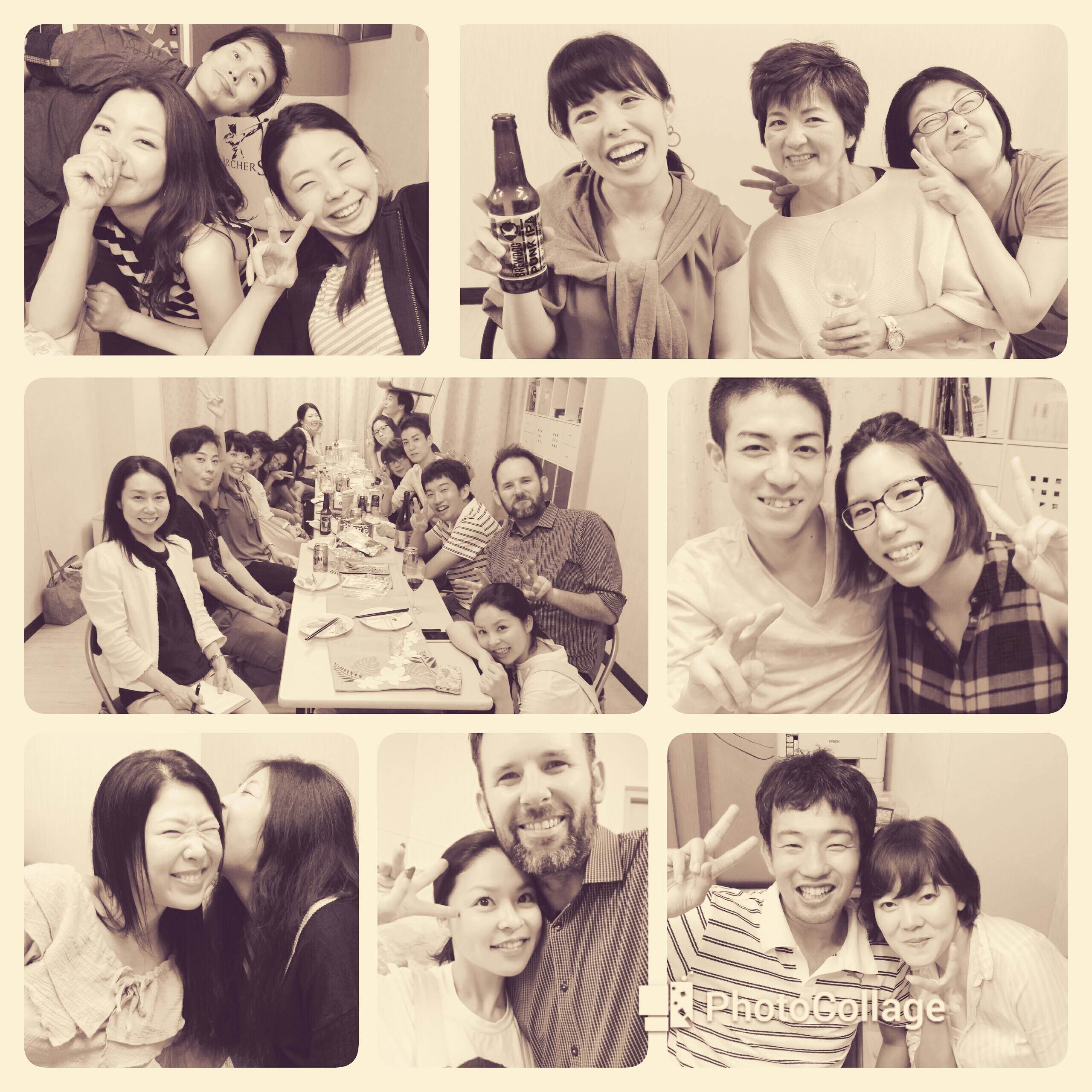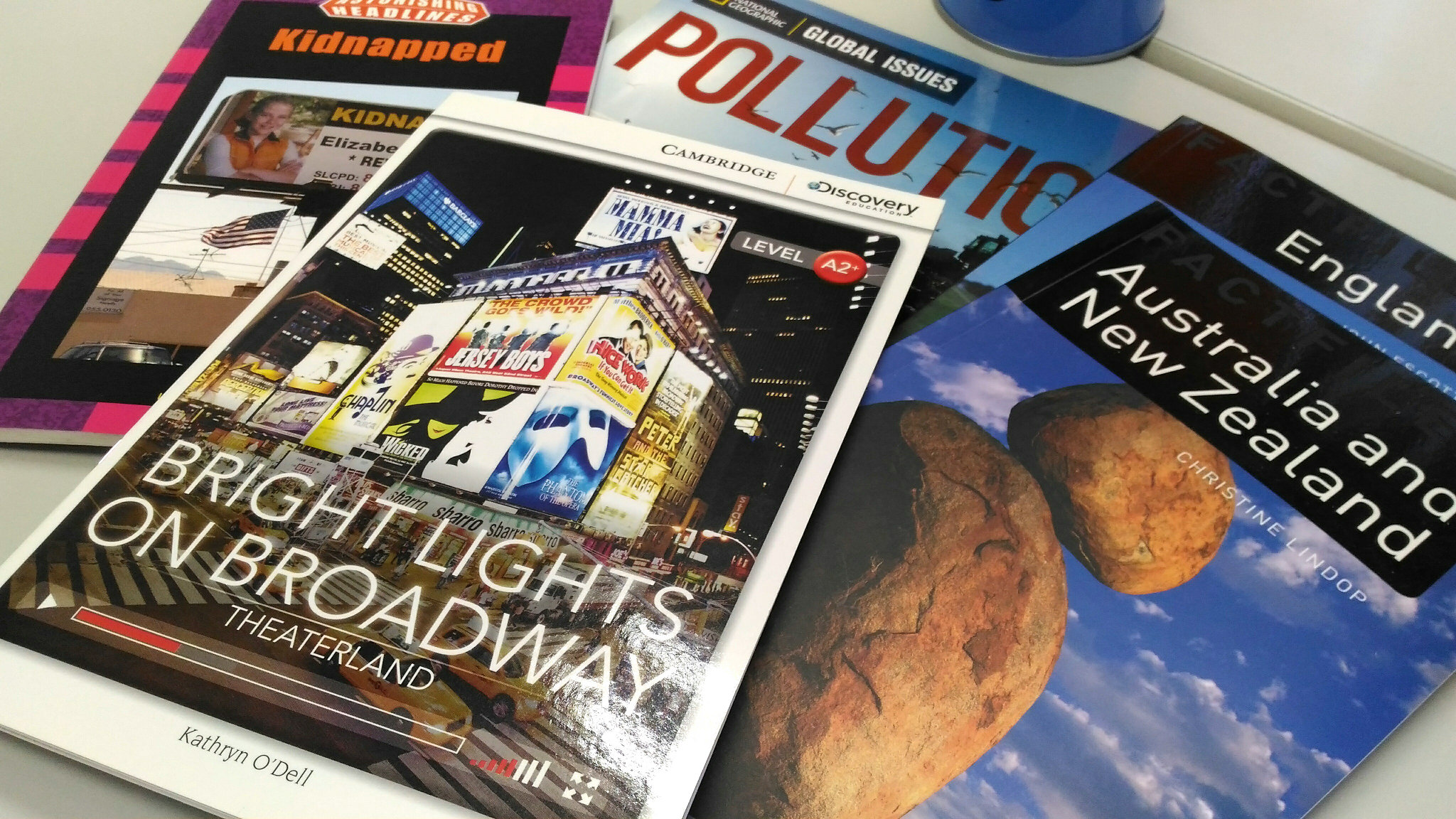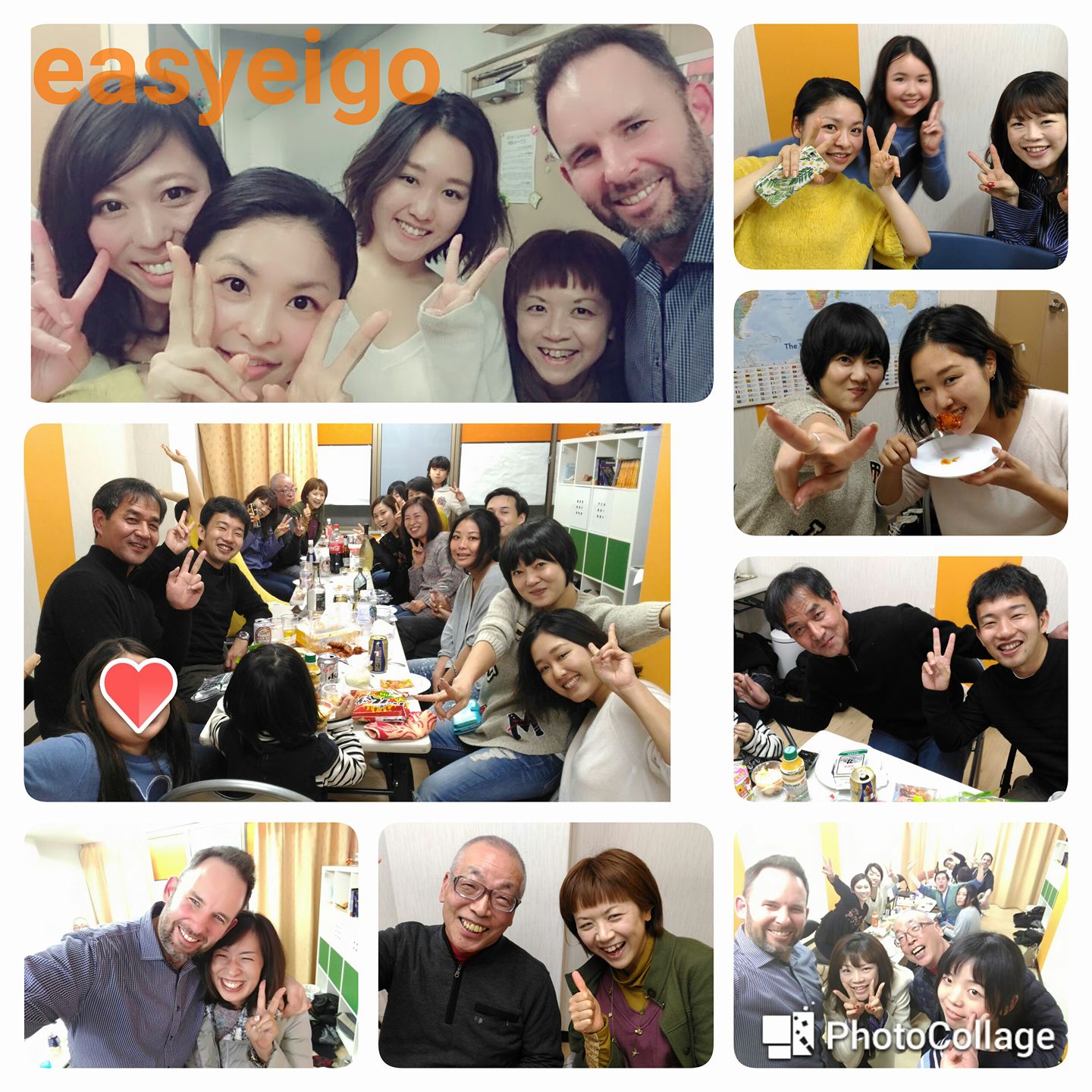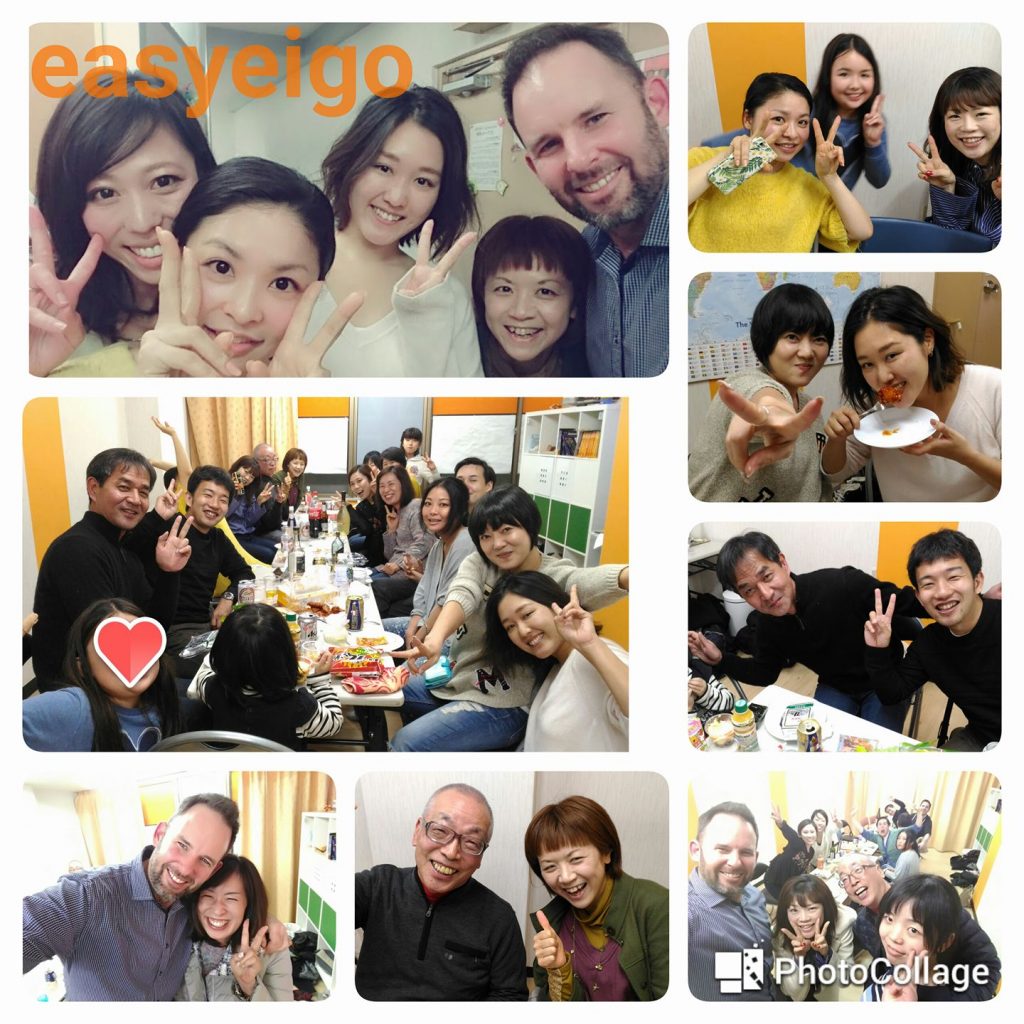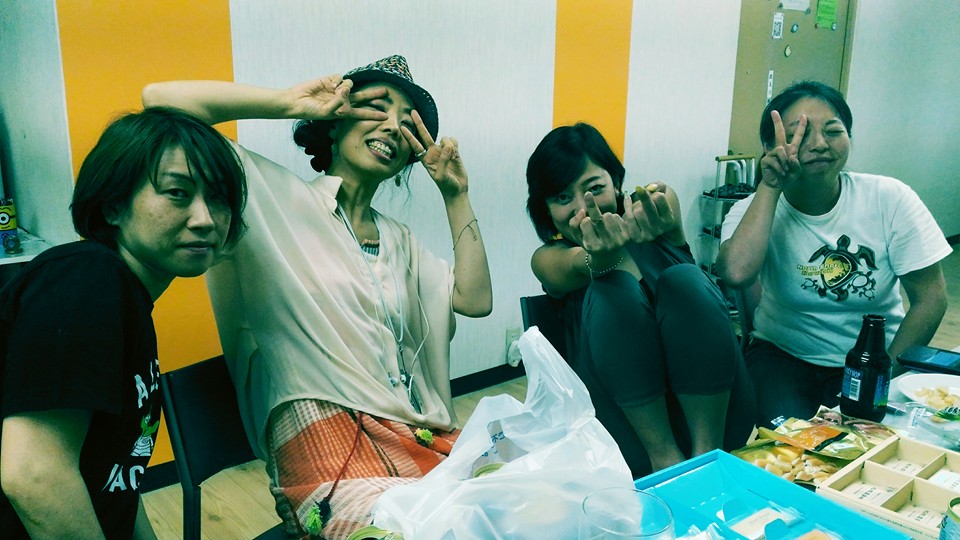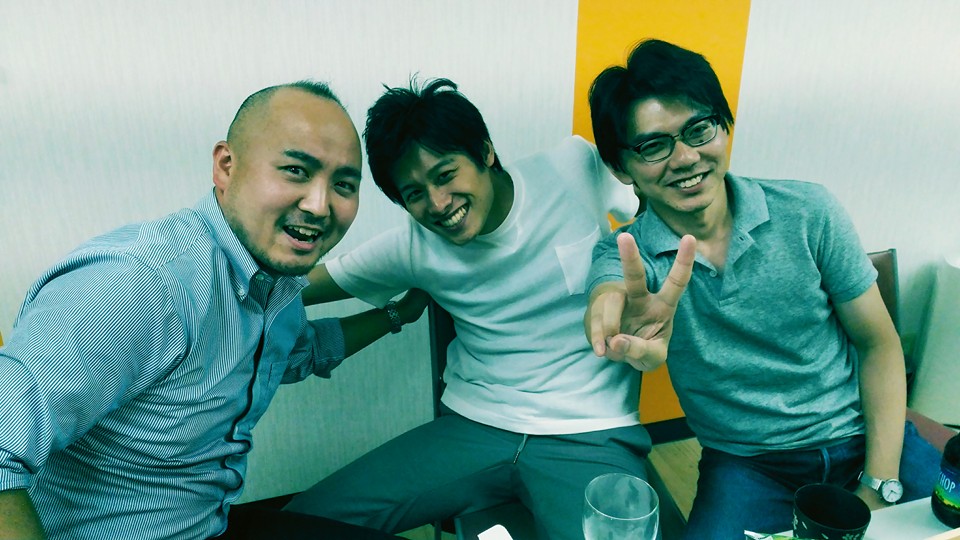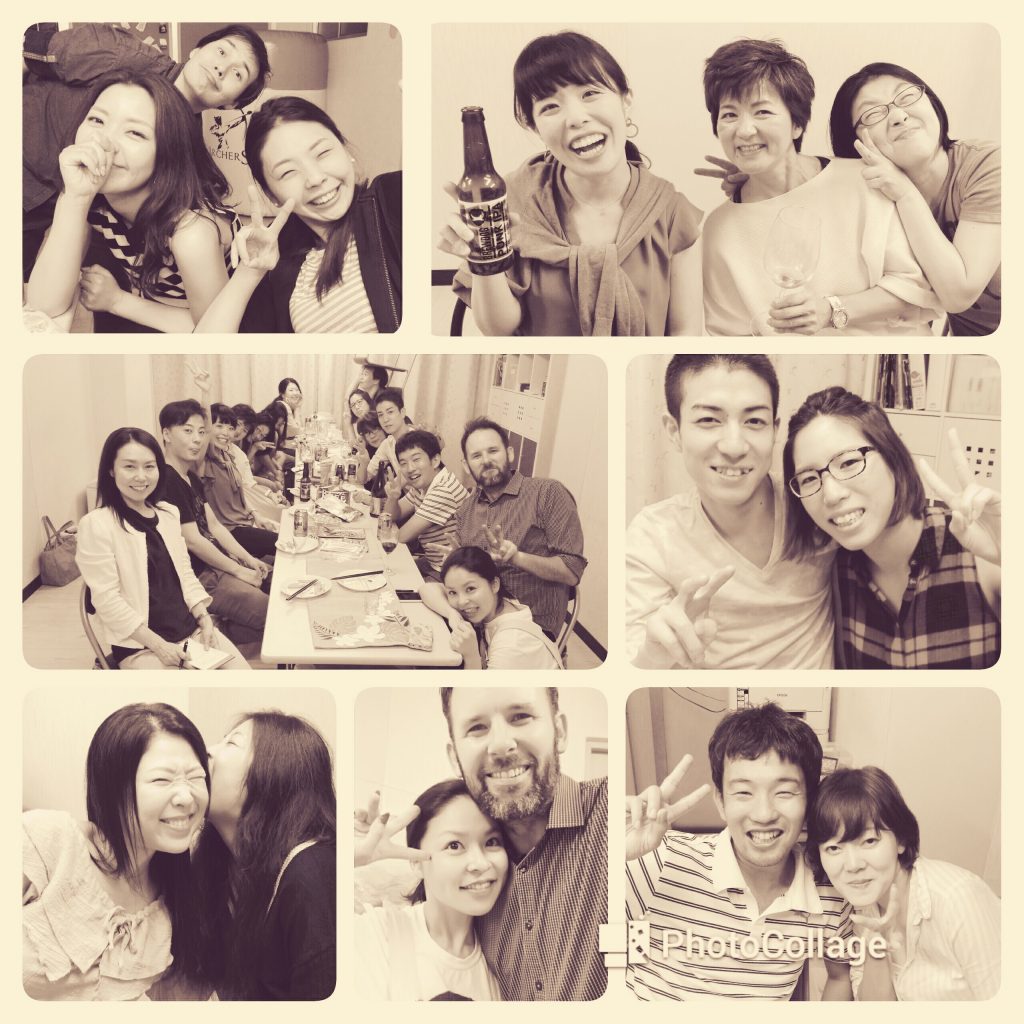 What a fantastic party!! Thanks to everyone for coming!!
What a fantastic party!! Thanks to everyone for coming!!
slider ニューズ
さようならTAKAとACE!!

2人の生徒が外国へ引越します。
寂しいけれど、日本から応援しています。
頑張って、そして楽しんでください!
You guys take care. I’m gonna miss you a lot!!
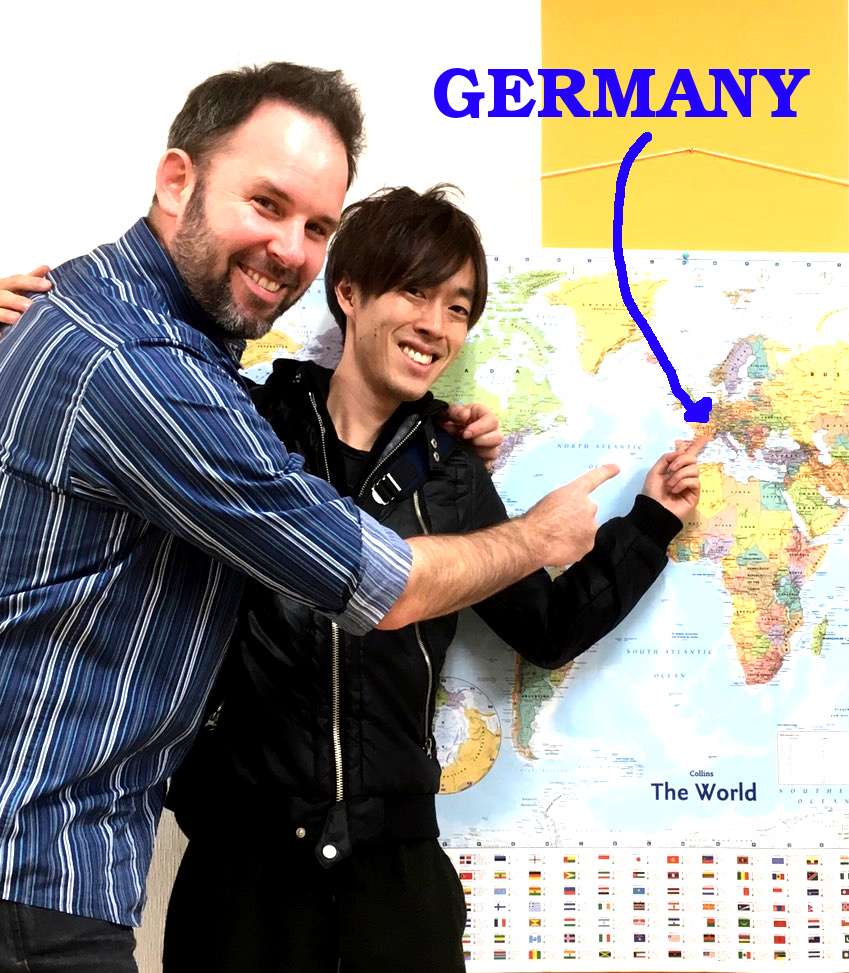
英語
~のに is easy !!!
Here is some easy English for you. A lot of my students tend to use “but” a little too much.
I studied really hard for a month, but I failed the test.
This is OK, but I feel that most Japanese might say something like
1ヶ月一生懸命勉強したのに、試験に落ちた!
..using a のに, not a けど.
So, an easy way to express のに in English is “even though“.
Even though ___A____ , ____B_____ .
or
___B____ even though ____A____ .
So,
- Even though I studied really hard for a month, I failed the test.
- My Japanese is not so good, even though I’ve been living in Japan for almost 14 years.
- Even though she promised she would come to the party, she never showed up.
- Even though he’s Japanese, Hiro hates sushi.
- I can never remember the word “断る”, even though I’ve studied it countless times.
slider イベント お出かけ キャンプ
easyeigo 秋川渓谷 BBQ!!
 Had a wonderful day BBQing by 秋川渓谷. 2 Koreans, 1 Japanese, 1 Australian and 2 noisy kids!!
Had a wonderful day BBQing by 秋川渓谷. 2 Koreans, 1 Japanese, 1 Australian and 2 noisy kids!!
I’m loving Summer in Japan!!
英語
More stuff to learn
Do you know this word “stuff”?? As a noun, it is uncountable (数えられない), but very common to describe 物 or 事 in English.
For example.
- There is a lot of stuff in my wife’s bag.
- I have some stuff to do today.
- I gave some of my stuff to my brother.
- She learned interesting stuff at the seminar.
- Can you help me move my stuff tomorrow? (引越し)
- My father knows a lot of stuff.
Also, you could use “things” instead of “stuff” for the same meaning. The only real difference is that “thing” is a 数えられる名詞, so you need to mind your grammar.
- There are a lot of things in my wife’s bag.
